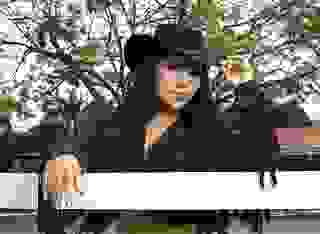Note: You can change font size, font face, and turn on dark mode by clicking the "A" icon tab in the Story Info Box.
You can temporarily switch back to a Classic Literotica® experience during our ongoing public Beta testing. Please consider leaving feedback on issues you experience or suggest improvements.
Click hereThey poured over the papers. After days, Trish and Dr. Simms identified the likely position of the platoon on modern topographic maps, as well as the farm owners. There were false leads; other searchers had identified the platoon's location on a farm north of Rochambeau: the Morneau farm. Jonas Simms was convinced they were in error, based on the family name, similar topography, and not actual maps from the period. Trish was prepared to investigate both locations, although much of the Morneau farm was now a housing development.
Despite their close work, Trish worried about her relationship with her advisor.
Dr. Simms called other candidates by their first names, some of whom he barely knew, but for some reason not Trish. She wondered why that was until she spoke with Emily, at a backyard gathering he held every spring and fall for his students. Emily planned to fly Trish to New York in just a few days.
Trish was helping Emily set up for the gathering. "Why does Dr. Simms call the other candidates by their first names but not me? I think we know each other better than any of the others, but he's never used it."
Emily was mixing a bowl of salad and stopped to smile at her. She looked directly at Trish. "Because he likes you," she said. Trish registered surprise.
Emily smiled and explained, "He doesn't call you by your first name because you're doing business and he wants to keep the professional distance. With the others that he advises, he doesn't fear he'll become their best buddy or cross a professional line. With you, he feels friendship, but until you get your doctorate, he wants to keep it professional." Emily's eyes were wide and sincere.
She knew her husband a lot better than Trish had known Ryan.
"It's not a crush. He did the same thing with a guy a few years ago. The one he just wrote a review of his book," she said.
Trish said, "Oh, I thought he was just formal with women."
"Well, he notices women but he's pretty consistently professional. With you he wants to be sure you see him as your advisor, not a guy hitting on you or anything." Emily finished with the salad and pulled some vegetables out of the oven.
"I'm ready to go to Europe," Trish said. "I'm kind of scared to look for the Lost Platoon. What if I find nothing, after all this?"
"Your dissertation's almost ready?" Emily asked.
"Yeah, except for the last draft and resolution of the Platoon's situation. It's a hole in the story. I've interviewed people of three generations. It was quite a crisis in 1919...A lot of people were just devastated around here," she said. "They had no closure. Some wrote their congressmen, Senators, President Wilson."
Emily shook her head. "I hope you find them. It's not very likely, is it?"
Trish shook hers. "I'm going to the last known position, look around there. The Germans say there's no record of an infantry attack on that date at that location, nor of taking time to bury a bunch of Americans—the Germans were pulling back that day. There was a big artillery bombardment to protect their withdrawal. There's a swamp right there, so maybe they went into that and were machine gunned or something. Who knows?" She seemed resigned to failure, if it should happen.
"You have a plan for being over there?" Emily asked, knowing there was no way her husband would let Trish go to Europe without an itinerary.
"I have appointments with the mayor of the town, a nearby museum director, some old guys in a nursing home, and I think the local priest. Also some guy who wrote a book on World War I in that area. I read the book, he hardly mentioned the Lost Platoon except to say it's final location was in question. But I'll be busy. I also have some days to wander the woods, if I can find where the Platoon was."
"I hope it's worth your while," Emily said.
"I'll see what the locals think. Hopefully it will be the denouement."
Emily smiled. "Practicing your French again, huh?"
*
Simms insisted on knowing everything about her trip, since she'd be flying alone. She promised to keep him updated. He was nervous about the trip, and didn't want her to notice. She was nervous, too.
She met with him at his house the night before she left. He said, "I may, uh, contact you to check on things. I don't want you feeling abandoned. Sometimes history is a lonely subject, alone in the stacks, or climbing over hills and through cemeteries." Trish smiled at that and saw Emily nodding, as if to say, 'Told you so.'
Emily flew Trish to LaGuardia privately, even letting her sit in the copilot seat for the flight. Trish found it exciting to sit on the right as the plane landed.
"Be sure to keep Jonas aware of everything," Emily said.
"I will," Trish promised, as she lugged her bag to find the Air France terminal.
It was the longest flight of her life, from LaGuardia to Paris. She had time to think, read, and wish things were different. Originally, she hoped Ryan would accompany her. She missed him, several months now.
CHAPTER 6: TRAVEL IN TIME
The inn was run by an old woman who introduced herself in English as "Audree, just Audree" and proceeded to the routines of the inn. Breakfast at seven, not after 7:30, room cleanings, run of the house. It was at breakfast that they talked. But for her, the inn was empty.
"Why are you here, mademoiselle?" she asked Trish, perhaps to test her French. "Rochambeau is not a tourist attraction."
Emily enjoyed using her French. "I'm studying history. Something happened near here, to some American soldiers in World War I. I was hoping to find out what happened to them."
Audree was nodding. She was perhaps 65, certainly not close to the World War I generation of a hundred years ago now, but old enough she may have spoken with them before they all passed.
"So much has happened since then," Audree said, sadly. "We have... the Germans took all of... the First War is now almost forgotten around here. We were occupied in the Second. We had Jews, they are all gone now. We lost all our boys to work in German factories, a generation. We had... collaboration. Resistance. Maqui. The Second War haunts us. If you were here for that, there would be trouble. Feelings are still very hard between families of the Resistance and those of the collaborators. Some are both."
Trish saw the emotion at lost lives, tragedy in lives changed by evil before Audree was even born. Many had remarked on the relationship of the First to the Second World War; here, the lines were probably even more indistinct.
"There is, to the east, a place where there were trenches, from the First War. The trenches are mostly gone, but some on the Moreau farm remain, or did when I was a child. We would run along them, but they were eroded and overgrown. I think that might be the place to start. Or maybe you'll see how hopeless it is."
Trish nodded, as if admitting she was close to defeat, but really more determined.
"Thank you so much. I planned to visit the Moreau farm."
"Oui, the old man still lives, he is perhaps 99? Not of the generation you seek, but they are all gone," Audree said. "He would have known them."
"Is he... lucid? Capable of remembering?" asked Trish.
Audree laughed. "Capable? He will tell you everything and more. But he will answer the question in his head, perhaps not exactly the one you asked. And be careful: he pinches. It's out the dirt road to the east, on the north side of town, not the paved one on the south side of the village, that one turns south."
"I will. I have an appointment with your mayor... Monsieur Gadot? In a few minutes. Tomorrow I think I will go to the Moreau farm." The Moreau farm might be the site she wanted anyway; the last known position of the Lost Platoon was east a few "clicks," as Dr. Simms said.
Trish was pleased. Audree saw her hope. "Just don't touch anything you don't understand. Bombs still come up from the ground every year. Especially on that farm. From the First."
*
She walked to the mayor's office, because she didn't have the money to rent a car. She wore loose pants, a light shirt, a jacket, light hiking boots, a ball cap. It was June and would be warm.
Perhaps the Moreau farm was their last location. It was east of the town, and about the right distance, according to Audree. She had copies of the orders to the platoon's company commander, the description of their last known position, the unit diary for the days before and after their disappearance, a report from a captain sent to investigate the unit's disappearance, and an old map with the platoon's location and the plan of attack for that morning, June 23, 1918. The pencil on the attack map was very faded, but Trish had it digitally enhanced, at some expense. Rochambeau was just two point five kilometers west. There was a trail or road marked nearby, communications trenches and the platoon's front line trench marked. She had the GPS coordinates entered into her phone.
Monsieur Gadot was older than Audree, tall and thin. "The First World War?" the old guy asked. "Yes. Moreau Farm." He mumbled something that Trish did not understand.
"Pardon?" she asked. "I didn't hear what you said."
"There is the ridge there. Some trench. No good for farming, overgrown with weed and scrub trees now. They said since the First War."
"Do you know anymore about it?" Trish asked, but the man shook his head no.
"We played there, army and cowboys and Indians, growing up in the DeGaulle years. We called it Crête Folle." Trish didn't understand at first, but then 'folle' came to her. Fool. Madman.
Madman Ridge.
He directed her to the Moreau farm, said the road was bad and might destroy her car.
"I will walk, then," she said.
That first evening in Rochambeau, Dr. Simms called her. She was no longer surprised.
"I intend to visit the Moreau farm east of town tomorrow," she said.
"Good luck, Miss Finch. Let me know what you find, if anything. And, please, be careful."
*
By the time she reached Moreau farm, Trish was perspiring. The day was hot in the sun, and the exertion made her thankful for the two water bottles she'd filled at the inn. There was a brick pylon where a dirt driveway intersected the road from the left. Trees lined the drive, but thinly, and crops were growing to left and right. At the end of the drive was a small farmhouse of white stucco, a barn, and a covered bin for silage, she guessed, Beyond were more fields, but to the northeast the ground rose rather distinctly. It was not terribly high, but it overlooked all of this land and would afford a good view were it not for the trees. The trees were not large; perhaps the soil was rocky, thin, or poor. The trees clung to a measly life.
She checked her copies of the maps while sitting under a tree beside the drive, checked her gps. Dr. Simms had taught her about contour lines and fingers and ridges and cliffs, and she'd identified saddles and spurs around Sky Grey and found them on maps and the old military maps of this area. She understood all of these things before he'd started with her, but he was right: the ground never looked the way the map seemed to describe. She understood the difference between contour lines and contours.
Before her was a ridge, actually a finger sloping from a hill some mile or so away. She assumed it was the platoon's last known position. It probably was.
Trish reached the small house, thankful for the shade of the trees near the house. There was a porch that brought some relief from the sun then. She knocked on the wood screen door.
"Ha!You never saw us!Ha!" she heard from behind and in French, startling her so she jumped. Two voices, from little people. She turned to face them but there was no one there. She looked about.
Behind her, she heard a man say, "You must look up."
She raised her eyes, and in the tree to the left she saw a thin arm stretched around the trunk and holding a branch in a small hand, and then a girl's head with a smile peeked around the tree. Nine, maybe? She saw movement to the right and noticed a boy, perhaps eleven, standing on a larger branch in another tree across the lane, smiling as if to say "gotcha."
"It's their way of saying welcome," the man said as she turned. He was short, her age and height, with a day's growth of beard and dark hair and eyes.
"Hello," Trish said. "I'm Trish Finch. I was told that a man lived here, and I was hoping I might talk to him."
"I live here, and I'm a man," he said. "Jacques Moreau." He studied her closely, unusually.
"No... I mean yes, but I was told an older man might tell me about the history of the area."
"Come in, Miss Finch. I heard that right?" he said, almost as if it meant something to him. "My grandpa is inside in the back room. It is the only one air conditioned, we have it running constantly in the humidity; it helps him breathe. He must be the one you seek."
He held the door for her
"Yes, Finch, thank you."
"You are American?" he asked, pointing to a chair in a small living room with a couch, coffee table, two chairs, a full case bookshelf, and assorted toys.
"Yes. I've never been to France. It's my first chance to speak French outside a classroom or one trip to Quebec years ago."She sat in the one chair, he took the near side of the couch about three feet away on the other side of an end table.
"Ah, I noticed how slowly you speak, but very well. You must have a talent. May I get you some water? Lemonade?"
"Lemonade would be great. Thank you."
He left the room and she heard him in the kitchen. He opened the kitchen door and yelled something to the kids, and she heard the girl answer back something. He came back with lemonade with ice in a tall glass.
"So why do you visit us, Miss? "He was looking directly at her, sipping his own lemonade but very serious.
"I'm a history student, working on a Phd. I'm studying the impact World War I had on my hometown. Near here, in 1918, was the last known position of an American platoon that never returned home. They died or something. June 23, 1918. It was quite a loss for such a small town as most of them were from. For all of western Ohio, really."
He was quite good-looking, she thought. His eyes were so direct and unwavering. She wondered if she seemed foolish to a man who worked the land, a more practical occupation than studying history. Who comes so far at such expense to find out what happened to some guys a hundred years ago?
She answered herself: Historians do.
"World War II was devastating to us in Rochambeau, you know. The resentments remain. There were many collaborators here, many acted out of fear, some were guerrillas or Maqui, one woman, who had her hair shaved in retribution, killed herself and they let her body hang..."
He said nothing but steadily looked at her.
She was quiet, and finally he went on. "But here, on this farm, we are famous."
She detected an ironic or sarcastic quality to his tone.
He continued,"We set a record, four years ago. We are still fighting not World War Two but World War ONE. You see, in our fields, we have an old trench from World War I, three trenches actually. What's left of them. There was fighting here early and then late in the war. Yes, there were Americans here, but for all these people, the Germans and British and Americans, everyone who was here in that war, it's over. You see?"
She did see but not what he was getting at. He seemed angry at the world, and he wanted her angry, too.
"For poilus and tommies and yanks it's all over. They were killed or injured or captured and the survivors, they went home." He was speaking with such emotion, she wanted to say, it was a hundred years ago!
"I didn't mean to upset you," she said, holding the cold wet glass to her cheek for some relief from the heat, wondering what was so unnerving to him, hoping her simple common gesture would bring him calm.
"No, no," he said almost in distress, as if he were having trouble making himself clear. "You must understand, at Moreau Farm the war is still being waged. The Great War is not over."
He paused, obviously with more to say. There was a passion in him that demanded respect..
"We have yet to defeat the Bosche. You see, the last casualty of World War I was here, on this farm."
She spoke up, hoping to calm him if she could. "I thought the last action was to the east and north in 1918?"
"No, you don't understand. No," he said, almost incoherently to Trish, "The soldiers stopped fighting and went home. Their war was over. The politicians signed a paper: It is over, celebrate! But farm wives, they fight on, for them the war goes on now a hundred years. My sister Amie. The children's mother, almost four years gone now." He looked angry.
"She was the last killed in World War I."
*
Of course, Trish knew that bombs were regularly making their way to the surface at all the modern battlefields. The freeze-thaw cycle exposed them; farmers near a battlefield were cautioned to watch carefully where they plowed, to check for unexploded ordnance of any type. Duds could prove deadly a hundred years later. Hand grenades, landmines, artillery shells, bombs dropped from planes: all were deadly threats to generations to follow. Dr. Simms had warned her about poking around unmarked, unchecked, perhaps unremembered battlefields. The European governments even had a highly paid and highly trained unit to recover or dispose of unexploded ordnance whenever found.
Jacques left her alone then to check on the children, who a few minutes later followed him into the living room and sat beside him on the couch.
"Cheri, Jean, this is Miss Finch. She came here all the way from America." The children perhaps had calmed him.
"Hello, Miss Finch," they mumbled looking down, suddenly shy at the close encounter.
"Hello, Cheri, Jean. That was quite a fright you gave me outside," Trish said and smiled.
They had little smiles now, but said nothing for a few seconds. Then Cheri said something to Jean that Trish could not hear. Trish raised an eyebrow.
Jean said, "She thinks you sound funny."
"I'm still learning French. I speak English at home," Trish replied.
"Oh," they nodded. "Could you say something in English?" Cheri asked.
In English, she said, "When I get home, I will tell my parents I met two French children named Cheri and Jean."
They laughed, probably not understanding. Jacques hushed them and told them to play within sight of the house, and they ran off.
"I can tell you a lot about what happened here, but my grandfather is the one who knows the most. He even has some papers. Come with me, bring your lemonade, we'll let him stay in his air conditioning," he said, turning and leading the way through a dining room and then a passageway.
He knocked, opened a door, and Trish felt the welcome of cool, dry air as she entered a small room with a daybed and a rocking chair. An old man was rocking gently in the chair.
"Grandpa," Jacques said, "this lady has come to visit us from America. From Sky Grey, Grandpa."
She'd not said Sky Grey, assuming they'd not know it. Jacques recognized her name.
The old man looked at her closely then. He had the mottled skin of great age and outside work, but his eyes were not dull. He could see, and Trish thought she saw memory there, intelligence.
"Her name is Miss Finch, Grandpa. Miss FINCH," he said, spelling it for the old man.
Silence. Trish stepped forward.
"I'm Patricia Finch, from Sky Grey, Ohio, and I'm trying to find out what happened to the American platoon that was posted here in June, 1918. The platoon leader was my great-grandfather's brother."
The old guy, sitting in his rocker, held out his hand and Patricia shook it, but the guy did not let go. She thought he was thinking and wishing. Wishing?








